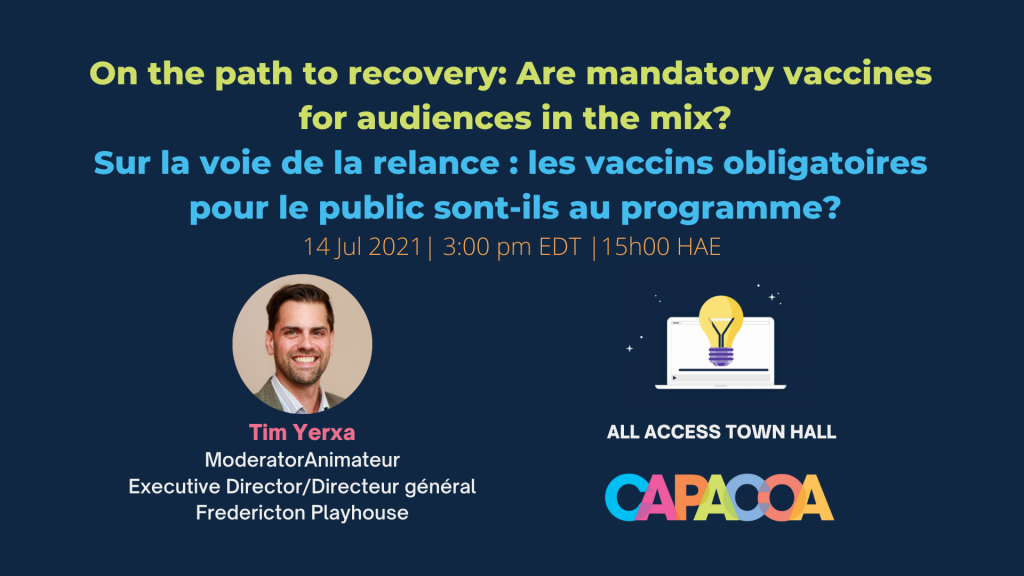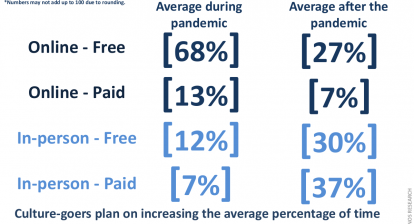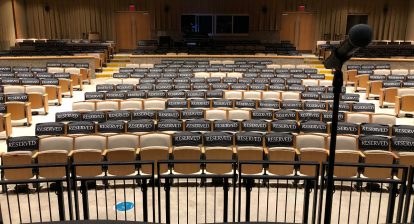As the performing arts sector opens its doors and welcomes back audience members, performing arts presenters are eager to determine how they can keep patrons safe, but creating safety protocols proves to be a logistical nightmare. One such protocol has been hotly debated – mandatory proof of vaccination from audiences.
In a town hall discussion hosted by CAPACOA, held on July 15th, 2021, and facilitated by Tim Yerxa, attendees were invited to discuss the issues surrounding required proof of vaccination. Here are some highlights from the discussion:
What are the objectives and opportunities arising from implementing proof of vaccination?
Though many are still unsure what their COVID-19 protocols will look like, participants clearly identified requiring vaccines as a means to reassuring patrons of their safety. Particularly as provinces look to remove all public health policies in the fall, presenters are hoping to set audience members’ minds at ease and show them that their organization puts the safety of their patrons first. This includes modelling safe practices for patrons.
What are the risks to implementing proof of vaccination protocols?
Asking for this information can alienate some audiences. Some may feel put off by the request and decide not to attend any further events. With COVID-19 already decimating some organizations’ audience bases, some presenters felt it was risky to further discourage audience members because they are not vaccinated. Many people feel strongly that requiring proof of vaccination is not an equitable practice and can be vocal with such feelings. There is a risk that they could tarnish the establishment’s reputation, further harming the establishment’s business in the process.
At which point in the audience member’s experience do you ask whether or not they are vaccinated?
There was a clear consensus that transparency is key. Any policies about proof of vaccination must be clearly stated in all communications and marketing initiatives. Everything must be laid out in strong terms to avoid any surprises. Some attendees discussed including a statement that patrons must accept before they purchase tickets agreeing to the terms and conditions of attending a concert. However, asking for proof of vaccination when purchasing tickets might be too soon for those who are waiting for their appointment. Asking for proof as close to the event as possible is ideal. Others felt that they could not push such strong measures onto their patrons, but instead, including a strong message encouraging patrons to be vaccinated or wear a mask for the event, relying more on an honour system. Either system requires clear cancellation policies.
What does proof of vaccination implementation look like in the venue and how do you accommodate non-vaccinated audience members?
Some attendees are expecting to rely on the honour system, while other presenters described a segregated approach. One policy would institute separate performances for unvaccinated patrons, while the other would have separate areas of the venue for those unvaccinated. For many presenters, this is not a feasible option since their venue spaces are not large enough to accommodate separate areas. Additionally, many were unsure if they could or would implement separate social distancing and mask rules for unvaccinated patrons. One attendee suggested that the hybrid format of many presenter’s schedules could work to the industry’s advantage. Offering the digital version of an event could help presenters avoid having to impose tricky policies for different populations.
Several concerns were raised with these scenarios. The social stigma of separating unvaccinated populations is an issue. Many smaller presenters also rely on volunteers. Is it reasonable for them to expect volunteers to police vaccination policies? Finally, if proof of vaccination is not standardized nationally, how do you regulate what is accepted? Much remains tentative.
What are the barriers associated with implementing the process/procedure?
On top of the cost, the logistics of the implementation process are incredibly complex. All attendees agreed that it would be easier if the governments were able to impose the regulations. However, it appears governments are hesitant to implement proof of vaccination policies. At this point, the layers of guidelines (government, venue, audience, and artist guidelines) pose the greatest barrier as organizations plan for an uncertain future.
While there were no definitive answers, it is clear that organizations are looking to explore innovative health and safety policies to ensure their patrons remain safe, healthy, and eager to return to live performing arts events!
Thank you to Tim Yerxa for facilitating this lively discussion!
Curious to hear what the audience research has to say? Read this other blog post exploring exactly that!









Pingback: Vaccination: how do culture goers feel about it? - CAPACOA